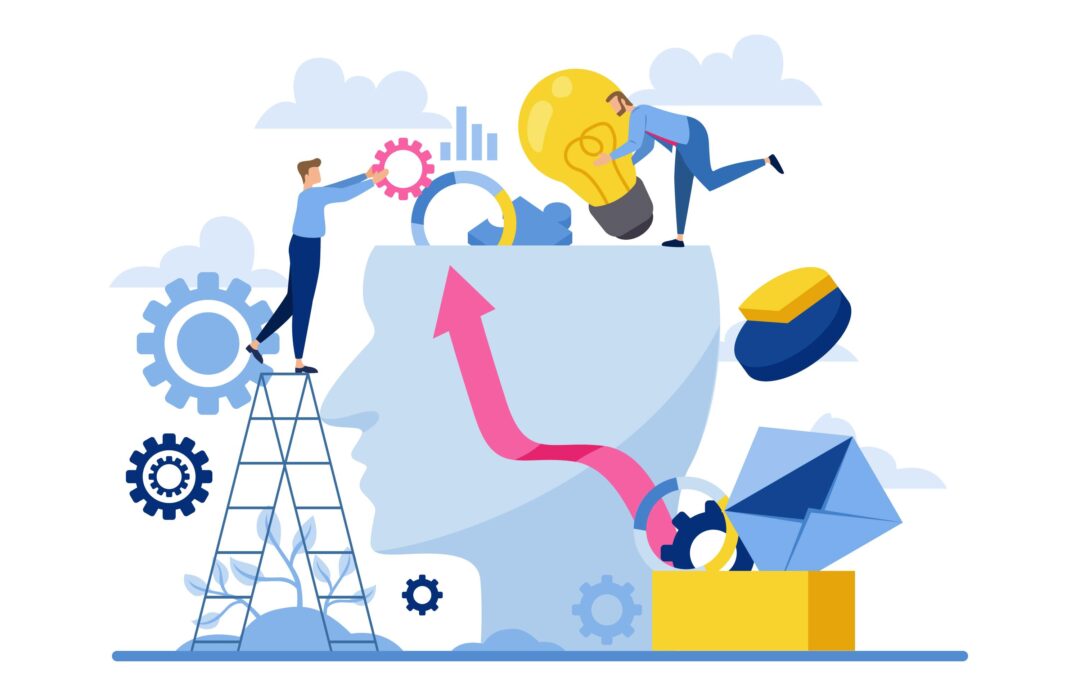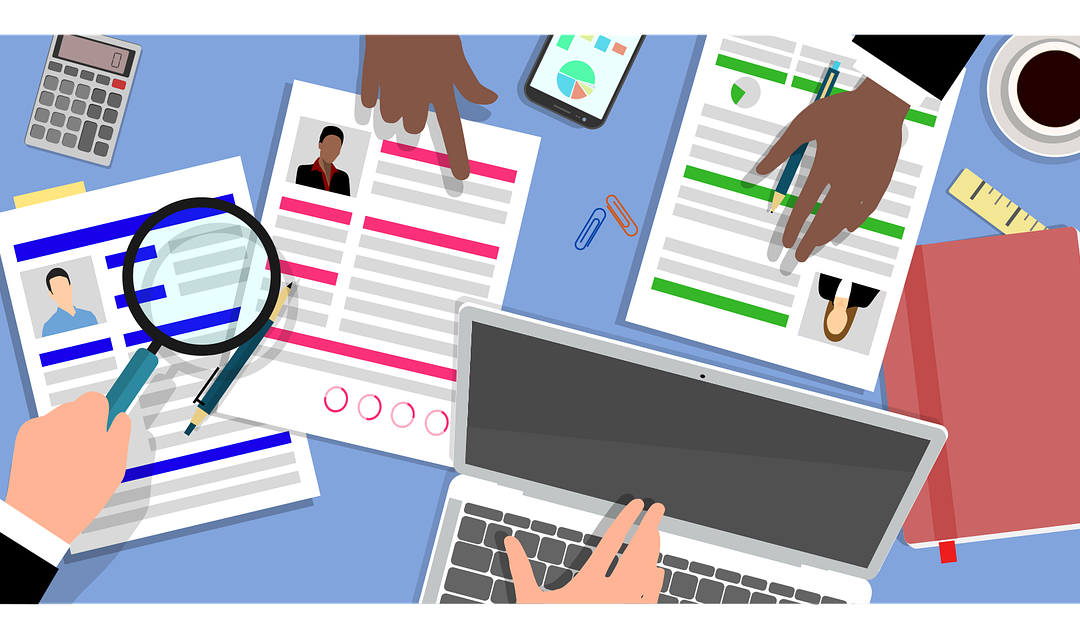
by The Talent Group | Mar 4, 2025
The job market is evolving faster than ever, and staying ahead requires more than just experience—it demands continuous learning. Upskilling isn’t just a buzzword; it’s a necessity for professionals who want to remain competitive and adaptable in an ever-changing landscape.
Companies are looking for candidates who can embrace new technologies, refine their expertise, and expand their skill sets to meet shifting industry demands. In 2025, some of the most in-demand skills include:
Top Skills Companies Are Looking for in New Hires:
🔹 AI & Machine Learning: Understanding how to work alongside AI tools and automation software.
🔹 Data Analysis & Interpretation: The ability to make data-driven decisions is becoming essential across industries.
🔹 Cybersecurity & Risk Management: With the rise of digital threats, companies need employees who understand data protection.
🔹 Project Management & Agility: Experience with methodologies like Agile and tools like Jira, Trello, or Asana.
🔹 Customer-Centric Mindset: Strong interpersonal skills and the ability to enhance customer experience.
🔹 Sustainability & ESG Knowledge: Companies are prioritizing professionals who understand environmental, social, and governance (ESG) factors.
Key Skills Candidates Should Focus on in 2025:
🚀 Tech Fluency: Even non-technical roles require comfort with digital tools, CRM systems, and collaboration platforms.
🚀 Adaptability & Problem-Solving: The ability to pivot and tackle new challenges head-on is crucial.
🚀 Emotional Intelligence & Leadership: Strong communication, empathy, and teamwork skills are must-haves.
🚀 Content Creation & Digital Marketing: Social media, SEO, and storytelling skills are valuable assets.
🚀 Negotiation & Persuasion: Effective communication and strategic influence are key in leadership and client-facing roles.
For job seekers, showcasing a commitment to ongoing learning can set you apart. For businesses, investing in employee development fosters innovation, retention, and a future-ready workforce.
Growth never stops. In a world where change is constant, the ability to evolve is the real competitive edge.
What skills are you focusing on in 2025? Let’s discuss!
#Upskilling #CareerGrowth #FutureOfWork #ProfessionalDevelopment

by The Talent Group | Feb 13, 2025
Panel interviews can be a powerful way to evaluate candidates, but when done poorly, they can feel overwhelming, disorganized, and even intimidating for both interviewers and candidates. A well-structured panel interview ensures a fair, efficient process that gives everyone the insight they need to make a great hiring decision.
Whether you’re bringing together hiring managers, team members, or senior leaders, here’s how to conduct a panel interview that leads to smarter hiring decisions and a better candidate experience.
1. Define the Goal of the Panel Interview
Before you bring multiple people into a room (or a Zoom call), get clear on why you’re conducting a panel interview in the first place. Are you looking for cross-functional input? Evaluating cultural fit from multiple perspectives? Assessing how a candidate handles high-pressure situations?
Once you’ve identified the goal, align with your panelists on what you want to learn from the conversation. Without this clarity, you risk an interview that feels scattered or redundant.
2. Choose the Right Panelists
A strong panel interview includes a mix of perspectives that reflect the role’s key stakeholders. A typical panel might include:
- The Hiring Manager – Oversees the role and evaluates core competencies.
- A Peer or Team Member – Assesses how the candidate would collaborate in daily work.
- A Cross-Functional Partner – Offers insight on how the role interacts with other teams.
- A Senior Leader (if applicable) – Ensures alignment with the company’s broader goals.
Keep the panel size manageable—three to five interviewers is ideal. Too many people can overwhelm the candidate and make the interview feel like an interrogation rather than a conversation.
3. Align on Roles and Questions Before the Interview
One of the biggest mistakes in panel interviews is lack of coordination. Without planning, you risk panelists asking repetitive questions, skipping key areas, or pulling the conversation in different directions.
Before the interview:
- Assign each panelist a focus area (e.g., technical skills, leadership, teamwork).
- Develop a set of structured questions that align with those focus areas.
- Ensure panelists know who will lead the interview and how the flow should go.
This preparation creates a smooth interview experience for the candidate and a more useful discussion for the team.
4. Set the Candidate Up for Success
Panel interviews can feel intimidating, so make sure the candidate knows what to expect. Before the interview, provide details such as:
- Who will be on the panel (names, roles, and how they relate to the position).
- The general structure of the interview (e.g., introductions, Q&A, closing).
- Any special instructions (e.g., if they need to prepare a case study or presentation).
Giving candidates this information helps them feel more confident, which leads to a more natural and productive conversation.
5. Create a Balanced and Engaging Discussion
During the interview, the goal is to make it feel like a conversation rather than an interrogation. Here’s how to keep things balanced:
- Start with introductions. Have each panelist briefly introduce themselves and their role.
- Rotate who asks questions. Avoid one person dominating the conversation.
- Engage with the candidate. Encourage follow-up questions and build on their responses.
A good panel interview should feel dynamic and engaging—not like the candidate is being grilled by a firing squad.
6. Observe More Than Just Answers
A panel interview isn’t just about what a candidate says—it’s also about how they engage with the group. Pay attention to:
- How they handle multiple perspectives. Do they make eye contact with all panelists or focus on just one person?
- Their adaptability. Do they respond well to different questioning styles?
- Their ability to think on their feet. Do they stay composed when challenged with follow-ups?
These observations can provide valuable insights into how they’d perform in a collaborative work environment.
7. Debrief as a Team After the Interview
Once the candidate leaves, don’t wait too long to discuss impressions. Set up a structured debrief to:
- Compare notes on strengths and concerns.
- Identify any patterns in responses.
- Discuss whether the candidate aligns with the team’s needs.
Having a structured evaluation process ensures that feedback is balanced and objective rather than driven by gut reactions.
8. Follow Up with a Great Candidate Experience
Regardless of the outcome, a well-run panel interview should leave candidates with a positive impression of your company. Keep the candidate experience strong by:
- Providing timely follow-ups with updates on next steps.
- Giving thoughtful feedback if they weren’t selected.
- Thanking them for their time—even if they aren’t the right fit, they may be a great match for a future role.
A positive interview experience strengthens your employer brand and keeps top talent engaged.
Final Thoughts
Panel interviews, when done right, offer a well-rounded way to assess candidates while creating a fair and efficient hiring process. By planning ahead, aligning your team, and focusing on the candidate experience, you can ensure your panel interviews lead to better hires—and a stronger, more cohesive team.
Need help optimizing your hiring process? Let’s talk. I can be reached at elyssa@thetalentgroup.net

by The Talent Group | Jan 30, 2025
Hiring is one of the most critical functions of any business. The right hire can propel a company forward, while the wrong one can set it back significantly. Yet, many organizations approach hiring with caution—playing it safe, looking for “perfect” candidates, and hesitating to take chances on unconventional talent.
But what if we flipped the script? What if we embraced fearless hiring—a mindset that prioritizes potential over perfection, agility over certainty, and boldness over hesitation?
What is Fearless Hiring?
Fearless hiring is about making strategic, confident decisions that prioritize adaptability, growth, and cultural fit over rigid checkboxes. It means:
- Hiring for potential, not just past experience. A candidate may not check every box, but their ability to learn and grow can outweigh any gaps.
- Embracing unconventional backgrounds. Some of the best hires come from non-traditional paths, bringing fresh perspectives and unique problem-solving skills.
- Prioritizing culture add over culture fit. Instead of hiring people who simply blend in, fearless hiring focuses on those who bring diverse viewpoints and challenge the status quo.
- Moving quickly. Top talent doesn’t stay on the market long. Fearless hiring means being decisive and acting with confidence.
The Risks of Playing it Safe
Being overly cautious in hiring can lead to missed opportunities and stagnation. Over-reliance on traditional markers of success—like years of experience, specific degrees, or industry tenure—can cause companies to overlook game-changing talent.
Playing it too safe can also result in:
✅ Slow decision-making: Losing great candidates to more decisive competitors.
✅ Lack of innovation: Hiring the same types of people leads to the same results.
✅ Limited diversity: Sticking to rigid criteria often excludes valuable voices.
Real-World Examples of Fearless Hiring
Some of the world’s most successful companies thrive on fearless hiring. Take Google, for instance—they prioritize problem-solving abilities over specific degrees. Netflix hires people who challenge leadership and think differently. Startups often build teams based on raw talent and adaptability rather than traditional credentials.
How to Hire Fearlessly
1️⃣ Reframe “must-have” requirements. Ask: “Is this truly necessary, or can they learn on the job?”
2️⃣ Spot high-potential talent. Look for curiosity, problem-solving skills, and adaptability.
3️⃣ Trust your gut—but verify. If someone excites you, dig deeper into their soft skills, attitude, and drive.
4️⃣ Move fast. If you believe in a candidate, don’t wait—great talent won’t stick around.
5️⃣ Encourage diversity of thought. Bring in people who challenge existing ideas and bring fresh perspectives.
Final Thoughts
Fearless hiring isn’t about recklessness—it’s about having the confidence to take calculated risks and trust in people’s potential. When organizations hire boldly, they unlock innovation, agility, and long-term success.
So, the next time you’re hiring, ask yourself: Are you playing it safe, or are you hiring fearlessly?
by The Talent Group | Jan 8, 2025
Apply Now
Our client, a leading design-focused supplier of consumer products, is seeking a Website & Email Manager to shape their digital future. Reporting to the Director of Marketing, this role manages website and email initiatives while collaborating with IT, Product Management, and other teams.
Key responsibilities include:
- Leading the digital marketing roadmap, including website, email, and e-commerce strategies.
- Managing website improvements, SEO best practices, and performance analytics.
- Driving email marketing automation and engagement strategies.
Ideal candidates have experience in website management, site merchandising, SEO, email marketing, and digital strategy, with strong organizational and problem-solving skills. Salesforce, Salsify, and Pardot experience is preferred.
Apply Now

by The Talent Group | Dec 16, 2024
Artificial intelligence (AI) has revolutionized many aspects of our lives, and the job search process is no exception. Today, tools like ChatGPT and specialized resume builders can help job seekers create polished resumes in minutes. But as with any tool, there are both advantages and pitfalls to consider when using AI to craft your resume. Let’s break down the pros and cons and explore what to watch out for to ensure your resume stands out for all the right reasons.
The Pros of Using AI for Resume Creation
1. Speed and Efficiency
One of the biggest advantages of using AI is how quickly it can produce a resume. By inputting your work history, skills, and career objectives, you can generate a professionally formatted resume in a fraction of the time it might take to craft one manually.
2. Professional Formatting
AI tools are often designed with modern hiring trends in mind, ensuring that your resume uses industry-standard formats. This can help you avoid outdated designs that may turn off recruiters.
3. Customizable Suggestions
Many AI platforms offer tailored recommendations for keywords, phrasing, and skills to include, often based on the job description you’re targeting. This can be especially helpful for passing applicant tracking systems (ATS) that scan resumes for specific terms.
4. Cost-Effective
Compared to hiring a professional resume writer, AI tools are generally more affordable. Some platforms even offer free basic services, making them accessible to job seekers on a tight budget.
5. Enhanced Creativity
For those who struggle to articulate their achievements, AI can provide inspiration by suggesting impactful ways to describe your experience, such as quantifying your results or framing your accomplishments in terms of value added.
The Cons of Using AI for Resume Creation
1. Generic Language
AI-generated resumes often rely on templates and pre-written phrases, which can result in generic and impersonal content. This may fail to capture your unique strengths and personality, leaving your resume feeling bland.
2. Inaccuracies and Misinterpretations
AI tools are only as good as the information you provide. If you input vague or incomplete data, the resulting resume may contain inaccuracies or fail to highlight your most relevant qualifications.
3. Overreliance on Keywords
While AI excels at inserting ATS-friendly keywords, overloading your resume with buzzwords can make it seem unnatural or robotic. Recruiters value authenticity and may be turned off by overly optimized resumes.
4. Limited Context Understanding
AI tools struggle to grasp the nuance of certain roles or industries, especially if your experience is unconventional or spans multiple fields. They may oversimplify complex achievements or misrepresent your responsibilities.
5. Lack of Personalization
Crafting a compelling resume involves more than listing skills and achievements; it’s about telling your career story. AI tools can’t fully replicate the human touch required to align your narrative with the needs of a specific role or employer.
What to Watch Out For When Using AI for Your Resume
1. Double-Check for Accuracy
Always review the AI-generated resume for errors, inconsistencies, or exaggerated claims. Employers may verify details, and inaccuracies can harm your credibility.
2. Adapt the Content
Use the AI-generated content as a starting point, but make it your own. Edit the language to reflect your voice and tailor the resume to the specific role you’re applying for.
3. Ensure Alignment with the Job Description
While AI tools can help with keyword optimization, take the time to ensure that the skills and experiences highlighted in your resume align with the job requirements.
4. Be Mindful of Overdependence
AI is a powerful assistant but not a substitute for critical thinking. Relying solely on AI without adding your personal input may result in a resume that’s polished but uninspiring.
5. Beware of Privacy Risks
Some AI platforms store your data or share it with third parties. Review the privacy policy of the tool you use to ensure your information is handled securely.
AI can be a game-changer for job seekers, offering speed, convenience, and professional guidance in resume creation. However, it’s important to approach these tools with a critical eye and a personal touch. By understanding the strengths and limitations of AI-generated resumes, you can leverage technology to enhance—not replace—your unique value as a candidate.
Have you used AI to create your resume? Share your experience in the comments below!




